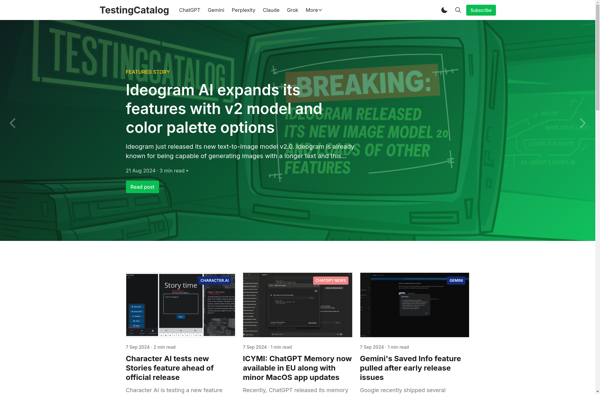Description: TestingCatalog is a test case and test data management tool for software testers. It allows you to organize test cases, link them to requirements, associate test data, track test execution and defects, and generate reports.
Type: Open Source Test Automation Framework
Founded: 2011
Primary Use: Mobile app testing automation
Supported Platforms: iOS, Android, Windows
Description: Visual Studio App Center is a service that brings together mobile app development, testing, distribution and analytics into one solution. It allows developers to automate continuous integration and delivery pipelines to build, test and monitor apps. Key features include distributing beta and production app releases, collecting crash reports and usage data, and running automated UI tests on real devices.
Type: Cloud-based Test Automation Platform
Founded: 2015
Primary Use: Web, mobile, and API testing
Supported Platforms: Web, iOS, Android, API

